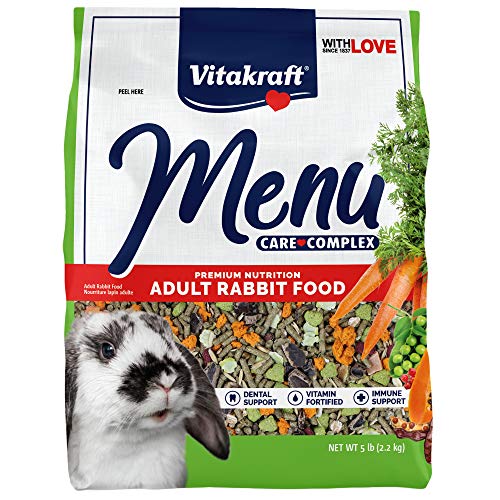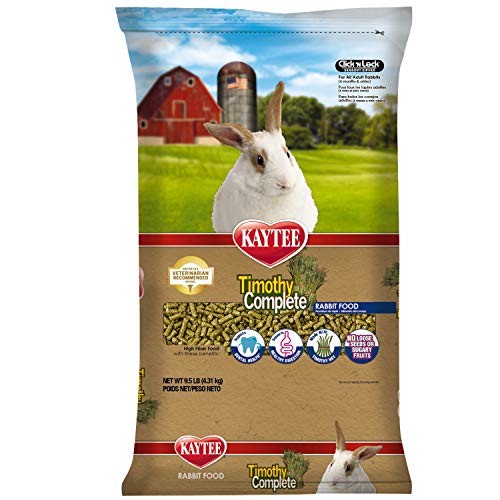You are using an out of date browser. It may not display this or other websites correctly.
You should upgrade or use an alternative browser.
You should upgrade or use an alternative browser.
hurt baby bunny
- Thread starter mygrl2k3
- Start date

Help Support Rabbits Online Forum:
This site may earn a commission from merchant affiliate
links, including eBay, Amazon, and others.
Pipp
Well-Known Member
Wild or domestic?
If it's wild, you can call a rehabber right away, I think there's alist in the Library under Wild Rabbit Rescue (or something).
How old is the baby?
Antibiotics will be needed ASAP because of the cat's saliva causing problems, among other things.
Poor baby.
sas
If it's wild, you can call a rehabber right away, I think there's alist in the Library under Wild Rabbit Rescue (or something).
How old is the baby?
Antibiotics will be needed ASAP because of the cat's saliva causing problems, among other things.
Poor baby.
sas
Pipp
Well-Known Member
There's a 'Wild or Domestic' link in here:
http://rabbitsonline.net/view_topic.php?id=15487&forum_id=17
Does he have his eyes open? He's old enough to be walking/hopping?
sas
http://rabbitsonline.net/view_topic.php?id=15487&forum_id=17
Does he have his eyes open? He's old enough to be walking/hopping?
sas
I am sad to report that the baby bunnydied. I tried to keep it warm, while I was finding someone tocontact. He was only about 2 1/2 inches to maybe 3,and eyesclosed. Pretty sad right now. Darn cat, I am going to get hima bell for his collar.
Cristy
Cristy

$26.80 ($26.80 / Fl Oz)
Genestra Brands HPTP | Support for Growth and Development | 1 fl. oz.
Pattern.

$8.37 ($0.14 / Count)
$8.99 ($0.15 / Count)
vH essentials Probiotics with Prebiotics and Cranberry Feminine Health Supplement - 60 Capsules
Amazon.com

$7.99
$15.99
Dog Slicker Brush for Grooming-Poodles Golden Doodles,Slicker Brush Large Dog Pet Grooming Wire Brush and Deshedding
frelectronics

$7.99 ($1.60 / lb)
$10.99 ($2.20 / lb)
Kaytee Forti-Diet Pro Health Adult Rabbit Food, 5-Lb Bag
Amazon.com

$14.95 ($0.12 / Ounce)
$16.99 ($0.13 / Ounce)
Kaytee Premium Potty Training Critter Litter for Pet Ferrets, Rabbits & Other Small Animals, 8 lb
Amazon.com

$12.32 ($0.15 / Fl Oz)
$14.49 ($0.18 / Fl Oz)
Oxbow Essentials Adult Rabbit Food - All Natural Adult Rabbit Pellets - Veterinarian Recommended- No Artificial Ingredients- All Natural Vitamins & Minerals- Made in the USA- 5 lb.
Amazon.com

$18.39
$26.99
How to Raise Rabbits: Everything You Need to Know, Updated & Revised Third Edition (FFA)
Night Crawlers LLC

$4.39
$4.99
HoAoOo Pet Training Clicker with Wrist Strap - Dog Training Clickers (New Black + Blue)
NewNewStar

$33.99
$39.99
Oxbow Essentials Adult Rabbit Food - All Natural Adult Rabbit Pellets - 25lb.
Amazon.com

$8.99 ($0.90 / lb)
Small World Rabbit Feed for All Rabbits | Provides Complete Nutrition | 10lbs
Amazon.com

$9.99 ($9.99 / Count)
$15.99 ($15.99 / Count)
Ptlom Pet Grooming Brush Cat Deshedding Brush, Self-Cleaning Slicker Cat Brushes for Long and Short Hairied Cats Dogs, Kittens Shedding Comb Pets Supplies Massage Tool for Hair Removal, Green
Ptlom

$24.95 ($0.31 / Fl Oz)
Rowe Platinum Muscle Maxx Show Rabbit Muscle Enhancer (5LB)
All Things Bunnies!

$31.49
$45.00
GUND Baby Flora The Bunny Animated Plush, Singing Stuffed Animal Toy for Ages 0 and Up, Cream, 12" (Styles May Vary)
Amazon.com

$25.70
$27.03
EZ-Straw Just Straw Clean Processed Straw ? Multi Purpose - Small Bale (1 Cubic Foot)
Esbenshades Garden Center

$13.69 ($3.42 / lb)
$14.99 ($3.75 / lb)
Supreme Petfoods Science Selective Rabbit Food, 4 lb
Amazon.com

$12.14 ($1.52 / lb)
$16.09 ($2.01 / lb)
Wild Harvest Advanced Nutrition Diet For Adult Rabbits, 8 Lbs
Amazon.com

$24.48 ($0.24 / Count)
Urinary Support by Sherwood Pet Health (100 Tablets - 60 Grams)
Sherwood Forest Natural Rabbit Foods

$3.00 ($3.00 / Count)
$4.29 ($4.29 / Count)
Cat Dog Brush with Release Button, Skin Friendly Grooming Cat Brush, Shedding Brush for Short or Long Haired Cats/Dogs, by gooljing (Yellow)
gooljing

$7.69 ($1.54 / Count)
MIBICIRI 5 Pack(500pcs)3/16" Dental Orthodontic Rubber Bands Orthodontic Elastic Orthodontic Supply (rabbit)
MIBICIRI
Pipp
Well-Known Member
So sorry. There really wasn't any hope. 
It was so kind of you to try. And a bell is an even kinder idea. :hug1
:rip:little baby.
sas :cry4:
It was so kind of you to try. And a bell is an even kinder idea. :hug1
:rip:little baby.
sas :cry4:
ra7751
Well-Known Member
Thanks for trying to help the injuredrabbit. Most likely a baby cottontail. I am alicesnced wildlife rehabilitator so I am going to use this thread topass along some helpful info. Keep in mind that most statesrequire a special permit to hold wildlife. And working withwildlife is much different than hand raising domesticatedanimals. A few guidelines that will help no matter what thespecies.
Keep them warm. Baby mammals and birds can't regulate theirbody temps. Supplemental heat is required even at roomtemperature. A heating pad on the lowest setting worksgreat. We suggest putting the animal in a small box linedwith some like tissue, a t-shirt or a baby receiving blanket.Do not use towels since the loops can cause injury. Place theheating pad under part of the box so the animal can move away from theheat if they want to. We also use socks packed either withuncooked beans or rice and heat it in the microwave. Heatedbottles of water. A hot water bottle. Even had onegirl keep a starling in a box on top of her laptop computer all night.
DO NOT OFFER FOOD OR WATER UNLESS INSTRUCTED TO DO SO BY AREHABBER. Goat's milk or kitten milk replacer is not suitablefor these animals. Thesesubstances do not have theproper nutrition forthese babies. Long term use cancausehealth problems or death. Baby birds do notdrink water. They are easily aspirated and that means certaindeath. Baby rabbits do not usually have a good sucking reflexand they also can be easily aspirated. "Pinky" opossums canonly be fed by inserting a feeding catheter into theirstomachs. And these babies require numerous feedings duringthe day....birds sometimes as often as every 15 minutes orso. Also, most birds fall under federal jurisdiction via theFederal Migratory Bird Act. And if any of these animals havebeen in water....they need to be in care immediately also to treat therespiratory system.
Any encounter with a cat is life threatening. Antibioticsshould be administered by a trained rehabber...the sooner, the bettereven if there is no visible signs of injury. Time is verylimited. Cats carry, among other bacteria, pasteurella, staphand pseudomonas....all are easily fatal to small animals.Dogs present crushing injuries with severe internal injuries.
Make sure the animal needs to be rescued. Many rabbits are"rescued" because nobody has seen their mother return. Sheonly returns once a night to nurse.If the babies are fat andwarm, they should be put back in the nest.Squirrels will comeget their babies that have fallen from a nest...unless the baby iscold. If a baby squirrel is cold, it needs to be with atrained rehabber immediately. Nestling birds that have fallenfrom a nest can be renested if you can safely reach the nest.Contrary to popular belief, birds can't smell your scent on theirchicks...most birdsdon't have a highly developed sense ofsmell.Many birds that are fledging are just learning how tofly under mom's watchful eye.We do not intervene in a naturalpredator situation....as hard as it is...example is a hawk chasing arabbit or other small mammal. We do intervene with introducedpredators such as a dog or cat.
Contact a wildlife rehabber as soon as possible. A trainedrehabilitator is a wild animal's best chance at survival.Here is one of the most informative links available.
http://www.tc.umn.edu/~devo0028/contact.htm
Thanks to everyone that wants to help...but help us help them. Get a needy animal to a rehabber ASAP.
"Keep the wild in your heart...not in your home".
Randy
Keep them warm. Baby mammals and birds can't regulate theirbody temps. Supplemental heat is required even at roomtemperature. A heating pad on the lowest setting worksgreat. We suggest putting the animal in a small box linedwith some like tissue, a t-shirt or a baby receiving blanket.Do not use towels since the loops can cause injury. Place theheating pad under part of the box so the animal can move away from theheat if they want to. We also use socks packed either withuncooked beans or rice and heat it in the microwave. Heatedbottles of water. A hot water bottle. Even had onegirl keep a starling in a box on top of her laptop computer all night.
DO NOT OFFER FOOD OR WATER UNLESS INSTRUCTED TO DO SO BY AREHABBER. Goat's milk or kitten milk replacer is not suitablefor these animals. Thesesubstances do not have theproper nutrition forthese babies. Long term use cancausehealth problems or death. Baby birds do notdrink water. They are easily aspirated and that means certaindeath. Baby rabbits do not usually have a good sucking reflexand they also can be easily aspirated. "Pinky" opossums canonly be fed by inserting a feeding catheter into theirstomachs. And these babies require numerous feedings duringthe day....birds sometimes as often as every 15 minutes orso. Also, most birds fall under federal jurisdiction via theFederal Migratory Bird Act. And if any of these animals havebeen in water....they need to be in care immediately also to treat therespiratory system.
Any encounter with a cat is life threatening. Antibioticsshould be administered by a trained rehabber...the sooner, the bettereven if there is no visible signs of injury. Time is verylimited. Cats carry, among other bacteria, pasteurella, staphand pseudomonas....all are easily fatal to small animals.Dogs present crushing injuries with severe internal injuries.
Make sure the animal needs to be rescued. Many rabbits are"rescued" because nobody has seen their mother return. Sheonly returns once a night to nurse.If the babies are fat andwarm, they should be put back in the nest.Squirrels will comeget their babies that have fallen from a nest...unless the baby iscold. If a baby squirrel is cold, it needs to be with atrained rehabber immediately. Nestling birds that have fallenfrom a nest can be renested if you can safely reach the nest.Contrary to popular belief, birds can't smell your scent on theirchicks...most birdsdon't have a highly developed sense ofsmell.Many birds that are fledging are just learning how tofly under mom's watchful eye.We do not intervene in a naturalpredator situation....as hard as it is...example is a hawk chasing arabbit or other small mammal. We do intervene with introducedpredators such as a dog or cat.
Contact a wildlife rehabber as soon as possible. A trainedrehabilitator is a wild animal's best chance at survival.Here is one of the most informative links available.
http://www.tc.umn.edu/~devo0028/contact.htm
Thanks to everyone that wants to help...but help us help them. Get a needy animal to a rehabber ASAP.
"Keep the wild in your heart...not in your home".
Randy
ambrose
Active Member
poor little baby, at least he died warm and safeand not terrified. Cats are a bit of a pain aren't they?I love my girlsand keep them inside because i got sick of pulling half dead crittersfrom my outher cats mouths!You think they'd leave them alone butcritters must look like so much 'fun' to them not to mention thehunting instinct!Good luck with the bell, hopefully he wont learn towalk softly on his tiptoes so the bell wont ring like my mums cat did,little smarty pants
tata baby bunny great info ra7751
great info ra7751
tata baby bunny





















































